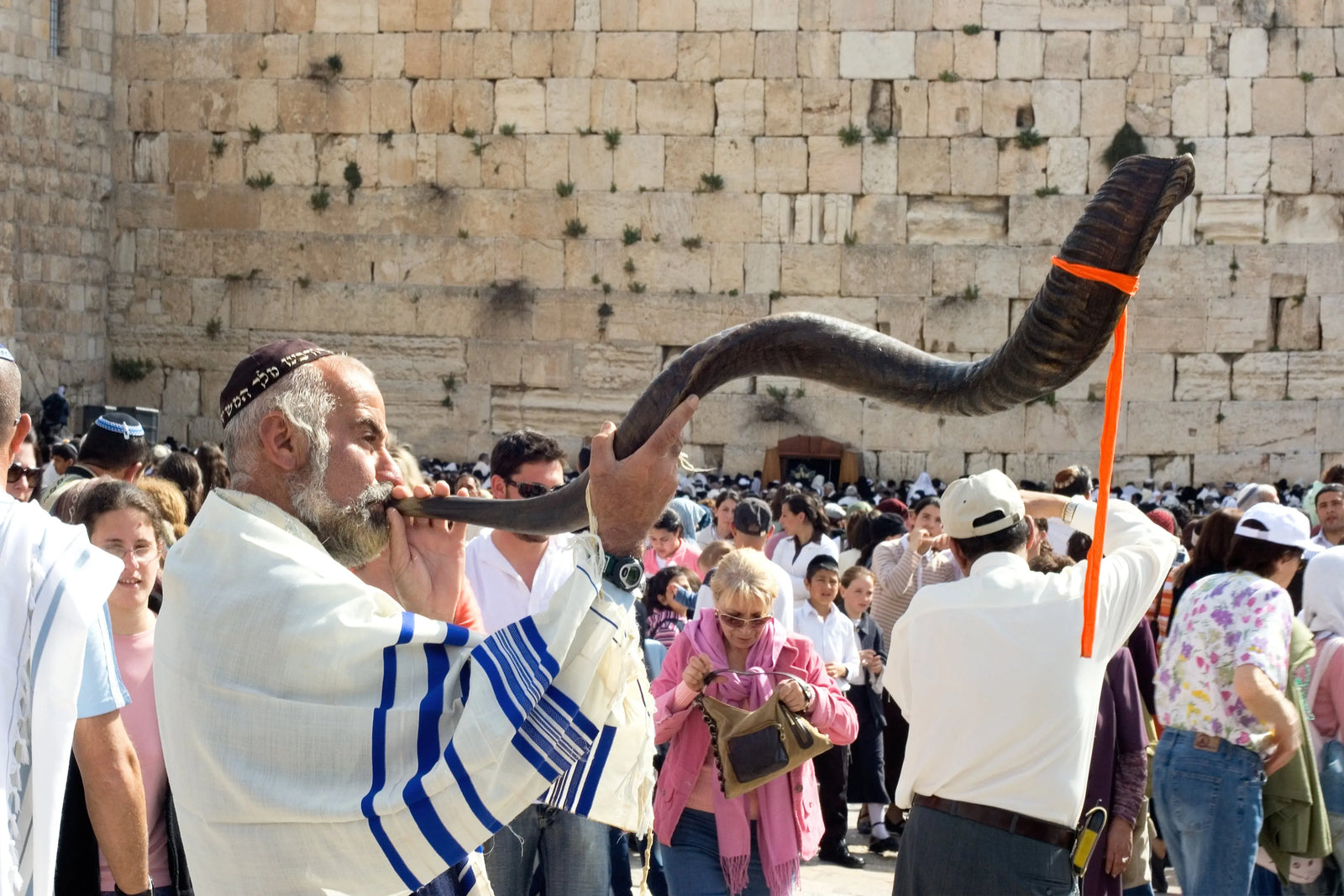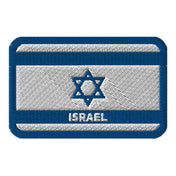For many, the new year begins with fireworks and countdowns on January 1st. But for the Jewish people, the year turns over in the fall, usually in September. This isn’t a cultural preference, it’s a reflection of a deep spiritual truth embedded in the Hebrew calendar (not the Gregorian calendar) and in Jewish identity.
The Jewish New Year, Rosh Hashanah, begins on the 1st of Tishrei, the seventh month of the Hebrew calendar. And yes, the New Year begins in the seventh month. That fact alone is a clue that we are dealing with a tradition that values spiritual meaning over modern calendar logic. To understand why the Hebrew New Year occurs in September, one must look beyond dates and into the story of creation, covenant, and divine purpose.

(Rosh Hashanah greeting card. Within the greeting card, the children have apples supporting a lit candle on the top of their Simhat Torah flag, a common practice during the printing of the card, 1910, Wikimedia)
Two Beginnings, One People - Hebrew New Year
The Hebrew calendar doesn’t begin with Rosh Hashanah, it begins in the spring, with the month of Nisan, the month of Passover, when the Israelites were redeemed from slavery in Egypt. This is the national beginning of the Jewish people.
But Rosh Hashanah marks something different. According to Jewish tradition, it is the anniversary of the creation of Adam and Eve, the first human beings. It is, in essence, the birthday of humanity. While Nisan begins the story of Israel as a nation, Tishrei begins the story of humankind. That’s why the New Year in the seventh month makes sense. It’s not about counting months—it’s about remembering who we are and why we exist.
A Day of Judgment
Rosh Hashanah is more than a New Year. It is the Day of Judgment, a time when, according to Jewish belief, God opens the Book of Life and evaluates each individual. Who will live and who will die? Who will be blessed with peace and who with hardship?
It is a day of awe, not celebration. The mood is serious, reverent, and introspective. It’s not about resolutions; it’s about responsibility. The shofar is blown, not to entertain or signal celebration, but to wake the soul from spiritual slumber. It calls every Jew to return, to reflect, and to repair what is broken within themselves and in the world.

(A Jewish man performs a religious prayer ritual, By AndersonPiza)
The Calendar Is a Message that the Hebrew New Year falls in September is not an accident. It is a reminder that Israel lives according to divine rhythms, not global trends. The Jewish calendar is a declaration of independence from secular systems. It insists that time itself is holy, that days and months are not just numbers but vessels for spiritual work.
The rest of the world celebrates the new year with parties, but the Jewish people usher in the new year with prayer, with repentance, and with the hope of renewal. I think that's a wonderul way to start something - with prayer.
A Global Relevance
Rosh Hashanah is also universal. While it is deeply Jewish, its message is not limited to Jews. It speaks to the idea that every human being is accountable, every life matters, and every year is a chance to begin again. In a world that often seems cynical, this ancient observance dares to believe in change, in mercy, and in the power of repentance.
This is why it matters that the Jewish New Year happens in the fall. It’s not about aligning with the seasons of the Western world. It’s about aligning with the deeper seasons of the soul.







6 comments
Not only adam and eve but david also
Was Jesus born on Rosh Hashanah too ?
Do you mean to say Adama and Eve were created in the month of Tishrei
Hi, could you please do some videos to help us understand and prepare for the fall feasts, so we can do them and understand them. Thanks so much
God bless you
Melanie
JUDGEMENT for the world & Dicipline for the JEWISH PPL = DIFFERENT – EYE OPENING vs. The world who wants nothing to do with GOD .
Hi, I read a very interesting Dutch article.
It was about the expectation of Jesus getting his bride on Rosh Hashana. As it is like judgment day for the people left behind after the rapture.
Jesus fulfilled important parts of God’s plan all on Jewish Holidays in spring time, for example Pesach.
That is why it is to be expected He is getting his bride on the next Jewish Holiday, Rosh Hashana.
I read that back in the old days there were certain watchers to see which one of both days it would be Rosh Hashana as it is based on being new moon. The hour wasn’t certain either.